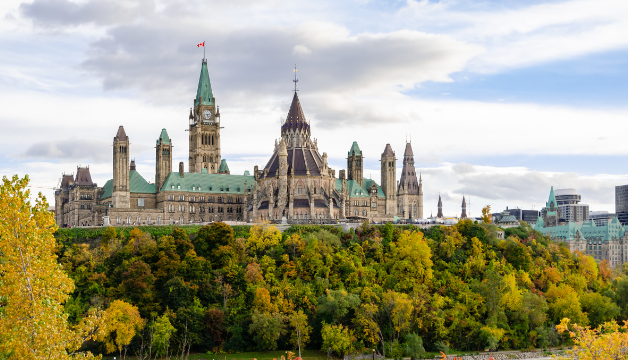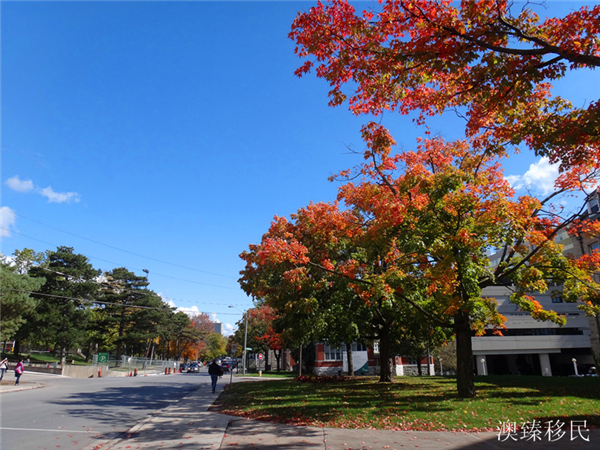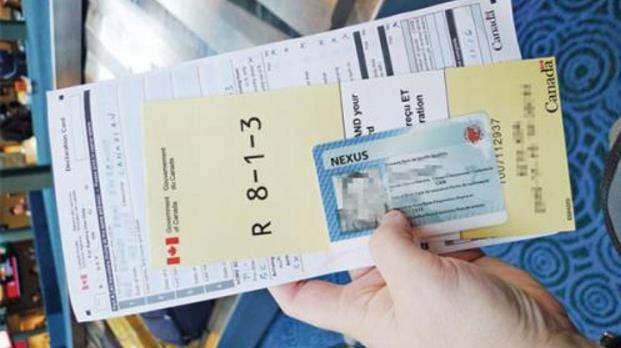Pros And Cons Of Canadian Maple Leaf Card: Enjoy Benefits, But There Are Also These Key Points To Pay Attention To
Pros And Cons Of Canadian Maple Leaf Card: Enjoy Benefits, But There Are Also These Key Points To Pay Attention To
Nano AI search, a new generation of intelligent answer engine, and a trustworthy intelligent search partner, provides professional support for complex searches and unlocks more relevant and comprehensive answers. AI conducts accurate semantic analysis of user questions and obtains more valuable information through follow-up questions
Maple Leaf Card holders can enjoy similar benefits to Canadian citizens, including but not limited to free medical services, high-quality educational resources - it is easier for children to go to college as local students - employment insurance - can receive corresponding subsidies when they are unemployed, sick, childbirth or adopt children, and a variety of social benefits - such as milk and pensions. In addition, in Canada, pregnant women, children and the elderly can enjoy generous benefits. For example, mothers enjoy maternity leave and longer maternity leave, and children can be exempted from tuition before high school. People over 65 years of age and who have lived in Canada for more than 18 years are eligible to apply for pensions, and those who have lived for 40 years can receive pension allowances. At the same time, they can also enjoy Canada's investment in the field of education, which accounts for 7% of the GDP, and its national education level ranks among the forefront of the world. Many regions have implemented 12 years of free compulsory education. Canadian education attaches importance to cultivating personal interests, and students explore their own strengths and apply them in exploration. This educational philosophy ensures that maple leaf card holders enjoy superior living security and broad development space in Canada. Holding a maple leaf card, people can easily shuttle between China and Canada without the need for cumbersome procedures, which greatly facilitates those who frequently travel between China and Canada, whether they are business travelers or close family members. International travel is more convenient. Compared with temporary visiting visas (such as student visas, work visas, and tourist visas), you can travel to a third country with a maple leaf card for travel or study. Although you still need to apply for a visa (such as going to the United States), the relevant procedures will be greatly simplified and the difficulty of processing will be reduced accordingly. Holding Chinese nationality and enjoying relevant rights: by obtaining a maple leaf card, applicants will have permanent residence qualifications in Canada, but they are still legal citizens of China. Therefore, they have the right to continue to enjoy the benefits and rights provided in the country, such as handling property in China, attending public schools, and insurance rights, which are not affected. One of the unfavorable factors faced by maple leaf card holders is the restrictions on immigration prison. To maintain permanent residence qualifications, you must live for two consecutive years within any five years. If you lack the residence time, you may lose your permanent resident status. Common reasons for repatriation include false statements in immigration documents, violations of the criminal law provisions of more than six months of prison terms, and insufficient residence time. In addition, if an individual continues to hold permanent resident status in Canada and does not apply for nationality, he may face the risk of being permanently banned from naturalization in the future. The benefits of Canadian citizenship include-no need to be restricted by residence requirements and full civil rights:--Residence restrictions are exempted: Once nationality is obtained, there is no need to be bound by "immigration prison", and even if you stay outside Canada, you will no longer be subject to the restrictions of the original regulations. This means greater freedom for those who must travel domestically or frequently around the world for a long time. Obtaining full citizenship: Once you become a Canadian citizen, you can enjoy the full rights of the country’s citizens, which includes the political right to participate in elections and be elected, and are also eligible to serve in national law enforcement. Travel convenience and career opportunities: Canadian passport holders can travel to more than 180 countries and regions without visa. This number varies according to different information, ranging from about 150 to 185, greatly facilitating those who frequently engage in international business and vacation travel. Easy to find employment in the United States: Thanks to the North American Free Trade Agreement, you can apply for a TN visa to go to the United States to develop your career without going through the cumbersome procedures such as those who hold a Canadian maple leaf card to apply for an H1B visa. After joining Canadian nationality, it means that you must waive Chinese nationality, thus losing the qualification to hold a Chinese passport. Whether you are going back to China for business trips or visiting relatives, you must go to the Chinese embassy to apply for a visa. At the same time, it will not be possible to continue to enjoy various domestic rights and interests, such as children attending public schools, enjoying benefits and insurance, and the disposal and transfer of property will also become complicated. When returning home, you may encounter the risk of visa rejection, because of the problem of immigration tendencies. In the comparison of the pros and cons of maple leaf card and naturalization, first look at political rights. People who hold maple leaf card do not have Canadian political rights and cannot participate in political activities such as elections; while those who become citizens can enjoy comprehensive civil political rights, including the right to vote and be elected, and are also qualified to hold positions in national law enforcement departments. In terms of residence flexibility, maple leaf card holders must comply with immigration residence regulations, i.e., for at least two years of residence for any consecutive five years, which limits their residence time; while naturalized persons are not subject to this restriction, and they can freely arrange their time outside Canada. (3) In the field of international travel, if people holding maple leaf cards want to travel abroad, they still need to apply for a visa, although the procedures have been simplified and the difficulty has been reduced compared to temporary visas. After becoming Canadian citizens, with their Canadian passports, they can enter more than 180 countries and regions without visa, making travel more convenient. (IV) Between traveling between China and the United States, maple leaf card holders still need to apply for a visa to go to the United States; for naturalized people, they can go to the United States to work and develop more easily through the TN visa. (V) On the issue of maintaining contact with China - people holding maple leaf cards still retain their Chinese nationality. They can travel between China and Canada without barriers and still enjoy all rights at home; while those who choose to join Canadian nationality have lost their Chinese nationality. If they want to return to China, they must apply for a visa and will not be able to enjoy domestic rights and may also be at risk of being denied entry. In terms of identity stability, if a maple leaf card holder violates relevant laws and regulations (such as providing false immigration documents, violating criminal law, failing to meet the standards for residence, etc.), his permanent resident status may be revoked; and for those who have been naturalized, their citizenship rights will generally not be deprived unless they can be proved that their citizenship is illegally obtained.





